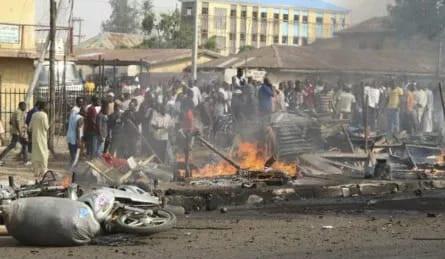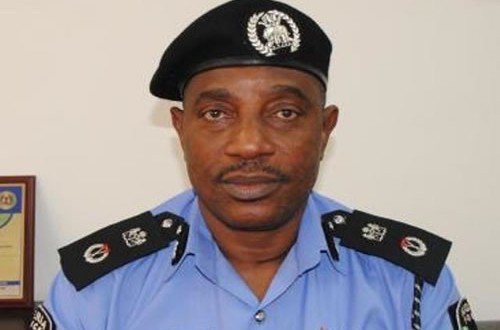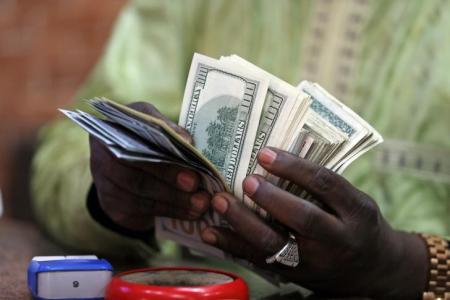A man dressed in a woman’s burqa blew himself up in the main market in Chad’s capital N’Djamena early on Saturday, killing 14 people and injuring 74, a police spokesman said.
No group immediately claimed responsibility but Chad blames Boko Haram, the Islamist militant group based in neighbouring Nigeria, for a series of bombings and shootings in the central African country in recent weeks.
“Our current count is 15 dead,” police spokesman Paul Manga, said, a total which included the suicide bomber.
A Reuters witness saw at least ten bodies lying near the entrance to the market where aid workers helped injured people into ambulances. Security forces stopped people entering the area and searched stalls for more explosives.
Several witnesses said that the bomber had tried to enter the market wearing a woman’s burqa. Chad authorities banned the head-to-toe religious garment last month, citing the risk that attackers could use it as a disguise or hide explosives underneath.
“The suicide bomber was a man disguised as a woman (in a burqa). He tried to enter the market when he was intercepted by police,” Manga said. “That is when he detonated the bomb.”
Residents said the explosion happened at around 0830 local time (0730 GMT), during a busy period before the midday heat.
“It is terrible to live through such things during the holy month of Ramadan and right next to the main mosque of N’Djamena,” Abubakar, a resident who had come to the market after hearing the explosion, said.
Chad has been at the forefront of a regional military campaign against Boko Haram, which is seeking to carve out an Islamist state in northeast Nigeria and has mounted raids in neighbouring Chad, Cameroon and Niger.
In June, two suicide attacks on police sites in N’Djamena killed at least 34 people. Since then, authorities in the central African country have made at least 60 arrests and raided an arms cache in an effort to dismantle the militants’ networks.
Chad’s oil revenues have helped to finance its defence spending and N’Djamena serves as a headquarters for an anti-Boko Haram regional force. The country also serves as a base for a 3,000-strong French mission, named Barkhane after a type of sand dune, which is fighting militancy in the Sahel.
Reuters














